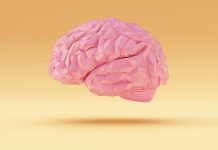
In a new study from Vanderbilt University, researchers found that the seasonal rate of change in daylight has the greatest effect on illnesses with seasonal patterns, including bipolar disorder and major depressive disorder with a seasonal pattern, more commonly known as a seasonal affective disorder.
This means that it is the change in the amount of sunlight from the day before, not the amount of sunlight itself, that affects how a person with such an illness feels and experiences the world.
In the study, the team used NASA’s solar insolation data—the amount of solar radiation that hits the ground—to calculate the rate of change at 51 sites around the world.
The data provided a granular level of detail that can help people identify exactly how changes to sunlight impact what they’re experiencing anywhere in the world.
The team noticed that even at the same latitude the patterns of change in solar insolation vary dramatically due to climate.
For example, during October in Los Angeles the rate of change of solar insolation ticks up because the Santa Ana winds push the marine layer out to sea. NASA data picked all of this up, including weather extremes like volcanic eruptions or smoke from wildfires.
This research has the potential to give people with bipolar disorder and major depressive disorder with a seasonal pattern a tool to self-manage their illnesses.
The team says with data on the rate of change of solar insolation, people can make more informed adjustments to their compensation strategies, including working with their health care providers to adjust their medication and the timing of their light or dark therapy.
Clinicians aware of this research now have a momentous opportunity to help their patients identify patterns that affect their lives.
If you care about depression and mental health, please read studies about women with this health problem twice as likely to suffer depression and findings of newer drugs for depression may increase death risk.
For more information about mental disease prevention and treatment, please see recent studies about this nutrient in your diet may help fight depression and results showing the world’s first test to accurately predict depression and bipolar disorder.
The study is published in Neuroscience & Biobehavioral Reviews. One author of the study is Sandra Rosenthal.
Copyright © 2021 Knowridge Science Report. All rights reserved.



